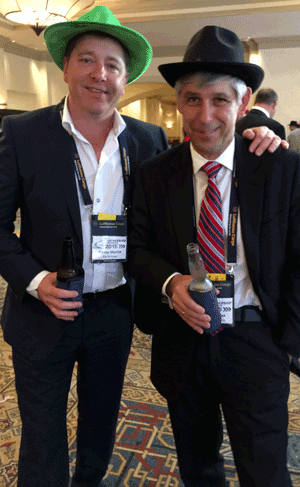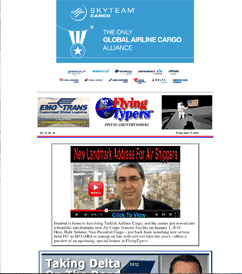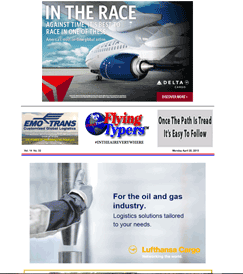| 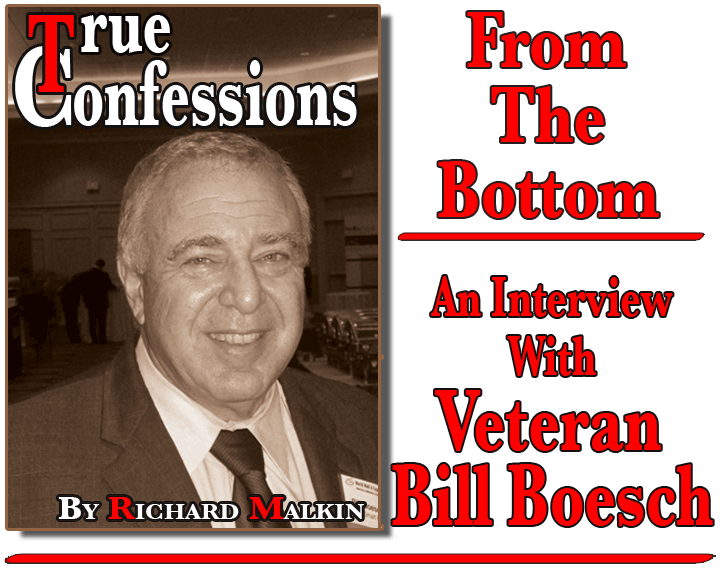
Quite a number of
year’s ago, a time when Bill Boesch sat astride American Airlines
Cargo, I entered the carrier’s first class lounge at Kennedy
Airport one morning and spotted him at one end of the room, partially
surrounded by a small group of cargo employees. His voice was low,
but judging by his stern face and decisive gestures, I guessed him
to be in lecture or censure mode. Boesch glanced in my direction,
got up quickly, walked across the room to clasp my hand and murmur
a greeting, and just as abruptly return to his group without saying
another word.
I mention this random incident to
underscore his strict attention to every minor detail. He was too
involved to make much of my coincidental appearance, but it was
vital to him not to ignore the formality of touching base. In his
long drive for success and recognition in the world air freight
industry, Boesch, now 71, held strictly to a philosophy of hard
work and pressing the borders of growth.
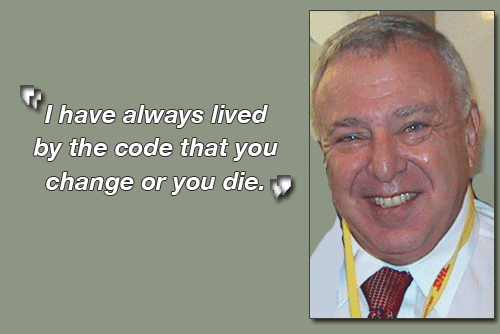 What are the seeds that make a successful air freight executive?
Boesch displayed no hesitancy in declaring “that person needs
to start out at the bottom and work their way up.” He explained
that it was possible to start in “a low-level management area”
or hefting cargo (as he himself did). It was like borrowing a leaf
from the military where officers start as second lieutenant or ensign
and, based on success in a variety of assignments, fulfill their
aspirations. Characterizing the U.S. military as “one of the
most successful industries in the world,” he stressed no one
started out as a general or admiral.
What are the seeds that make a successful air freight executive?
Boesch displayed no hesitancy in declaring “that person needs
to start out at the bottom and work their way up.” He explained
that it was possible to start in “a low-level management area”
or hefting cargo (as he himself did). It was like borrowing a leaf
from the military where officers start as second lieutenant or ensign
and, based on success in a variety of assignments, fulfill their
aspirations. Characterizing the U.S. military as “one of the
most successful industries in the world,” he stressed no one
started out as a general or admiral.
Boesch was wholeheartedly in favor
of the airlines drawing a valuable lesson from the nation’s
military and “stop putting people at the top of cargo organizations
without going through the ranks.”
How do U.S. air freight executives
measure up against their overseas counterparts? Boesch confessed
to having “mixed feelings” about the question put to
him. He pointed out that the U.S. no longer operates all-cargo schedule
service “so the top U.S. cargo executives are now within the
integrators”—that is, FedEx and UPS. Continuing, Boesch
stated:
“Many foreign airlines operate
all-cargo schedule service and therefore have a broader field of
responsibility than the cargo heads of the U.S. passenger airlines.
But on the other hand, dealing only with passenger aircraft bellies
is a science, and those U.S. executives have a harder job in formulating
strategies where they have belly capacity to fill. Therefore, U.S.
and foreign cargo heads have different fields of expertise and both
are strong.”
In the end, however, he went on to
say, when you train the light on the integrators, the U.S. charter
all-cargo carriers, and the huge capacity offered by the cargo heads
at the three big U.S. passenger carriers, “the edge must go
to the U.S. as an overall advantage.”
What were the inner thoughts of Bill
Boesch concerning the air freight forwarder and air cargo agent?
In his view they were “trying,”
but they lacked an adequate strategic level. He blamed them for
allowing the integrators to capture “much of their market.”
Referring to his time at American Airlines, he sought to “rally
them to jointly come up with ways with the airlines to protect this
market, but all they were interested in was to play airlines against
each other to get the lowest rates.”
Boesch posed several questions: “Exactly
what is their present strategy for their role in the industry? What
are their goals, and are they achieving them?” Calling attention
to changes in the industry and the promise of more changes to come,
he asked: “What will change, and how will they continue to
add value is the major question they should be tackling.”

Bill leveraged what he learned in
air cargo and growing up on the streets of New York City while
in Iraq and Afghanistan, often times risking his life out
in the countryside negotiating with Sheikhs and others to
build better supply routes. The result kept U.S. soldiers
safe while building local employment. And as this picture
underscores, the cargo was delivered as booked.
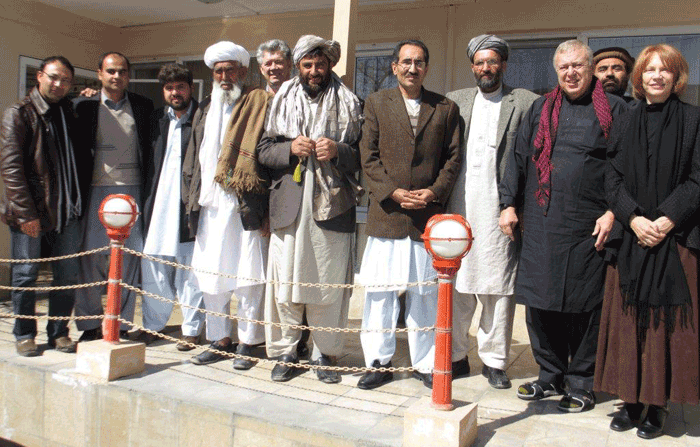
|
As a youth in New York’s
Jamaica area, living in a fifth-floor walk-up apartment, this lofty
perch enabled William Raphael Boesch to spend hours watching the
graceful movements of landing and departing aircraft at nearby Idlewild
Airport. It is a miscue to assume that this was the source of inspiration
to devote his life to air transportation. Mentally, young Bill was
already on his way to satisfy family hopes of his turning out to
be a medical doctor or a figure in one of the sciences. In the end,
those professions were to find talent elsewhere. A couple of college
degrees—a BS and a Masters—were effective sparkplugs.
(Still on the way to completing his education, he was able to enjoy
a thrill to patronize the Golden Door restaurant located in the
tower of the airport.)
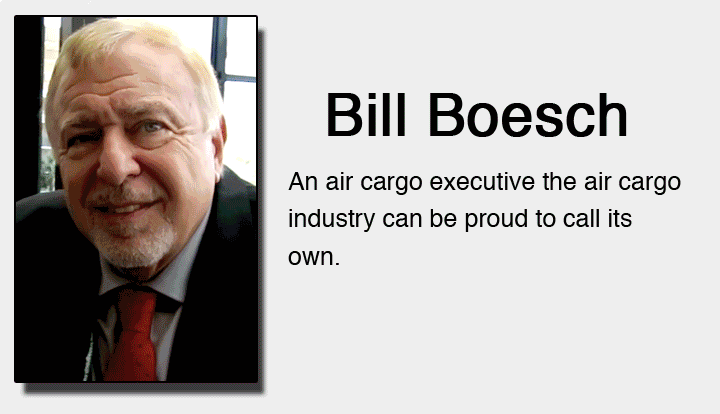 |
Boesch was a late teenager
and student when his family made the leap from Jamaica to Baldwin,
New York. For the young man the gnawing necessity of adequate “spending
money” spurred the need to find a summer job. It is tempting
to believe that this was the point at which his choice career took
its first, still indefinite, turn.
As fate would have it, his next-door
neighbor was Peter George, a stalwart of Emery Air Freight, serving
as its executive vice president – operations. George had worked
under John Emery Sr. when he managed the wartime Pacific logistics
operations from Hawaii. Another member of that team was George’s
friend, John Mahoney, who went onto join Capital Airlines and soon
thereafter a new all-cargo carrier, Seaboard + Western Airlines.
So the question of a summer job for Boesch hung on whether he preferred
to work for an air freight forwarding company or an airline. Boesch
had no trouble choosing the latter. Now, relaxing as he related
the experience with a distant look in his eyes, Boesch said:
“Little did I know that I would
eventually hold high management positions at both companies, and
that the summer job would shape the rest of my life.”
It was George Hegel who held that
“life has a value only when it has something as its object.”
In Boesch’s case, his drive toward the “object”
started from a routine that progressively included warehouse worker,
pallet builder, aircraft loader, weight and balance agent, customer
service agent, New York City sales representative, Detroit manager,
customer service manager, and finally, vice president – sales.
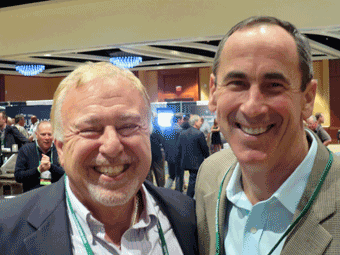 Bill
Boesch pictured with Four Star General of the United States
Air Force Raymond E. Johns Jr., who served as Commander, Air
Mobility Command, Scott Air Force Base in Illinois, USA. Bill
Boesch pictured with Four Star General of the United States
Air Force Raymond E. Johns Jr., who served as Commander, Air
Mobility Command, Scott Air Force Base in Illinois, USA.
General Johns said: “Bill did the hard,
dirty, dangerous work necessary to establish effective relationships
with tribal leaders and then devised a working transportation
system that reliably supplied distant outposts. The most compelling
point, in my view, is that Bill quietly did all this while saving
taxpayer dollars and the lives of U.S. service members.” |
The continuity of
upward movement at Seaboard came to an end when he agreed to head
the Flying Tiger Line’s European sales. But following a brief
stay, Boesch crossed over to the forwarding sector when he joined
Emery Air Freight as vice president – international sales.
In two consecutive promotions he assumed positions as senior vice
president – sales and marketing, and executive vice president.
Then came associations with Pan American World Airlines as vice
president – cargo, followed by senior vice president –
passenger and cargo sales and marketing. Boesch’s name flashed
at American Airlines, where he was named vice president –
cargo, then in quick succession president and then chairman of the
cargo division and he wound up in direct activity with air carriers
as U.S. head of DHL Global Mail.
In service for the United States government,
Boesch was a consultant on hostile activities, member of the Gore
Commission, head of the C-17 commercial study, as well as the Iraq
transportation and Afghanistan Transport Network Logistics Operations—and
others.
In the series of interviews, a standard
request of the interviewer is to name three individuals who had
an impact on his career.
Boesch agreed wholeheartedly to cooperate—too
wholeheartedly it turned out.
Starting with his Dad, William J.
Boesch (“My teacher and role model”) and uncle, Dr.
Ern D’Angelo (“Taught me how to read people.”)
then went on to Peter George (“Got me into the industry and
taught me how to be professional and honest and quality as an important
factor.”); John H. Mahoney (“One of the smartest I have
known”); Fred Smith (A dream will come true if you work hard
at it); Blaise Durante (strategy); Mike Wynne (How to deal politically
in a hostile environment); Ray John (patient leadership); Julius
Maldutis (dealing in the financial world).

In general, how does
cargo security stack up in the industry these days? Has it achieved
a fully acceptable level? Boesch took exception to the phrase “fully
acceptable,” asserting that it “depends on your definition”
of the phrase, a complex undertaking. Pleading permission to “ramble
on,” he said:
“It was in the Seventies after
an IATA meeting in Geneva where we were briefed on security. I went
to Frankfurt on my way back, and called on a few top German forwarders.
I told them that security was coming, and they looked at me as if
I was nuts. Security did come, and there was a drive to put draconian
security on the cargo moving on passenger flights. I argued that
all cargo flying should have the same level of security, as a forwarder
can use either freighters or passenger bellies.”
Boesch went on to note that the airlines
are united in adopting a stern approach to assure “customers,
crew, and aircraft are protected from attack.” It took some
time for the carriers to halt using security as a competitive advantage
“and I commend the industry for this effort.”
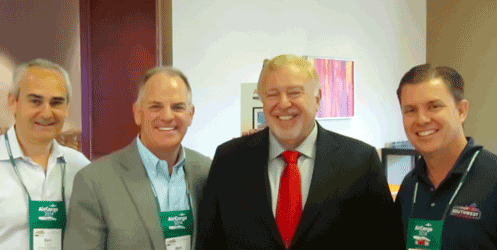
Bill Boesch at Air Cargo 2014 with Matt Buckley,
Vice President, Cargo & Charter, Southwest Airlines Cargo (second
from left) and his team.
Have the advancing years—say,
the last quarter-century—produced a change in airline corporate
attitude toward air freight’s contributions and react to its
needs? Twenty-five years ago, Boesch observed, the air cargo business
was at a point where it was emerging from its infancy and proceeding
to its middle age: “Jet speed, jumbojet freighters, large
volumes moving at lower cost in jumbojet passenger. Flight belly
space, quality management systems, large container IT systems, bar
coding, etc.…” These, he said, resulted in air cargo’s
entry to big business, “Responsible for a large part (estimated
40 percent) of global trade revenue. Add to the foregoing the industry’s
greater sophistication had the reality of management’s greater
degree of sensitivity to the cargo sector’s contributions.
As a veteran air cargo executive,
could he put a finger on the airports he regarded as most efficient?
Boesch’s initial response was to indicate it was an “honor”
that used to go to JFK, ORD, LHR, CDE, FRA, and TYD, “with
JFK in the lead.” No more. Credit the changes to the integrators
and the “Orient, Middle East, and South American booms”
for the changes. At the top today is Memphis, trailed by Incheon,
Ted Stevens, Dubai, and Louisville. As Boesch viewed the current
situation, “Air cargo has grown from moving primarily emergency
traffic to a supply chain logistics tool carrying a large part of
the revenue of world trade.
On the subject of the status of paperless
air freight, Boesch offered the following comment:
“This has been going on for
years. We had Project 2000, 2010. IATA needs to take the lead here,
and not the carriers, as it needs global acceptance. Back then it
was hard. Today it is not.”
The record shows that more than a
dribble of air shippers have returned to surface transport. Briefly,
why? Boesch’s response: “Cost, quality, faster ships,
new ways of protecting perishable goods at sea, improved ground
logistics at each end, improved ports.”
Boesch was asked to take a hard look
into the future, and did he detect any signs of potential difficulties
for the air freight industry. Boesch’s terse answer was a
flat “yes.” He bore down hard on the fact that 76 percent
of the Fortune 500 companies have vanished because they failed to
change. He predicted that modern technology will create new opportunities,
and it will be those firms that respond positively will achieve
success. On the other hand, he suggested, a company’s current
success and profits may “hold it back.” He asked this
intriguing question: “Would Flying Tigers have accepted the
large losses and/or huge expense to transform itself into Federal
Express?” Boesch described change as a “number one difficulty.”
As to himself, “I have always lived by the code that you change
or you die.”
When the talk drifted to the highs
and lows in the marketplace, Boesch said: “Unlike the passenger
air industry, it is impossible for a cargo carrier to create a demand
in a weak market. Also, cargo is monodirectional, so one leg is
usually a challenge. Opportunities are in lowering costs, improving
quality, and developing new logistic transportation vehicles.”
Does the helicopter have a possible
role to play in commercial air freight? So far as he could see,
the answer was no. He cited the high cost of operation and the “fixed
physics of helicopter flight—speed, altitude, range.”
 |
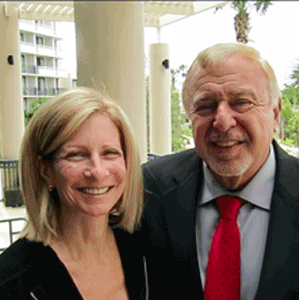 |
| Bill Boesch, former President
of American Airlines Cargo, was elected into the TIACA Hall
of Fame. Here he is pictured with life partner Shari (L) and
daughter Heather (R) at the TIACA Awards dinner, and in Orlando
at Air Cargo 2014 where Bill keynoted the conference. |
Rounding out the
interview, he suggested that IATA needs to be “more forceful”
and cease “acting like politicians.” He readily acknowledged
the difficulty “when you need unanimous agreement and all
carriers get the same vote.”
For Bill Boesch, the road to the upper
levels of the industry has been a twisted and event-laden one. It
took a summer job with a cargo airline during his school years to
divert him from a career with a stethoscope or bacteria-reading
microscope. This wisdom of his youthful choice is highlighted by
his induction into TIACA’s Hall of Fame.
Richard Malkin
malkin101@aircargonews.com
|






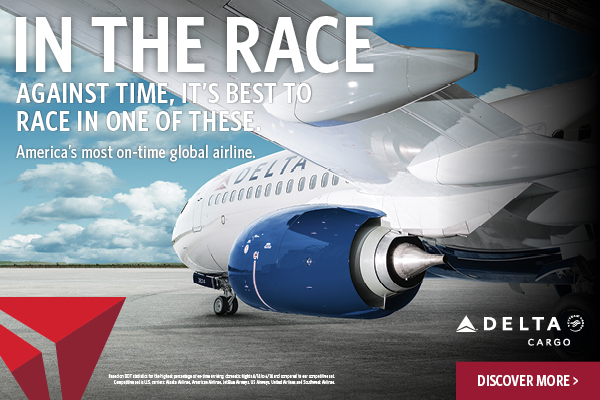
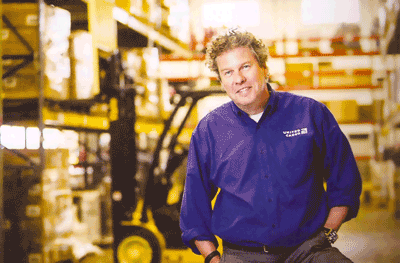 Earth
Day is the perfect opportunity to recognize and recommit ourselves
to aviation’s responsibility to protect and preserve the environment.
We’re proud of United’s industry leadership in this
area through our Eco-Skies initiative – and of Cargo’s
contribution.
Earth
Day is the perfect opportunity to recognize and recommit ourselves
to aviation’s responsibility to protect and preserve the environment.
We’re proud of United’s industry leadership in this
area through our Eco-Skies initiative – and of Cargo’s
contribution.

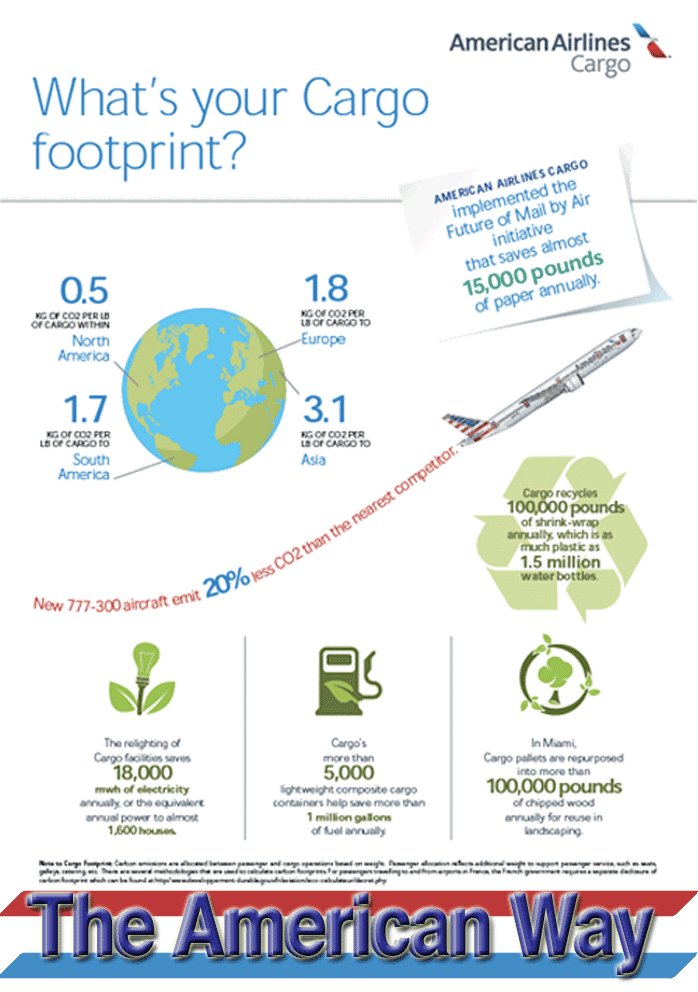

 What are the seeds that make a successful air freight executive?
Boesch displayed no hesitancy in declaring “that person needs
to start out at the bottom and work their way up.” He explained
that it was possible to start in “a low-level management area”
or hefting cargo (as he himself did). It was like borrowing a leaf
from the military where officers start as second lieutenant or ensign
and, based on success in a variety of assignments, fulfill their
aspirations. Characterizing the U.S. military as “one of the
most successful industries in the world,” he stressed no one
started out as a general or admiral.
What are the seeds that make a successful air freight executive?
Boesch displayed no hesitancy in declaring “that person needs
to start out at the bottom and work their way up.” He explained
that it was possible to start in “a low-level management area”
or hefting cargo (as he himself did). It was like borrowing a leaf
from the military where officers start as second lieutenant or ensign
and, based on success in a variety of assignments, fulfill their
aspirations. Characterizing the U.S. military as “one of the
most successful industries in the world,” he stressed no one
started out as a general or admiral.










